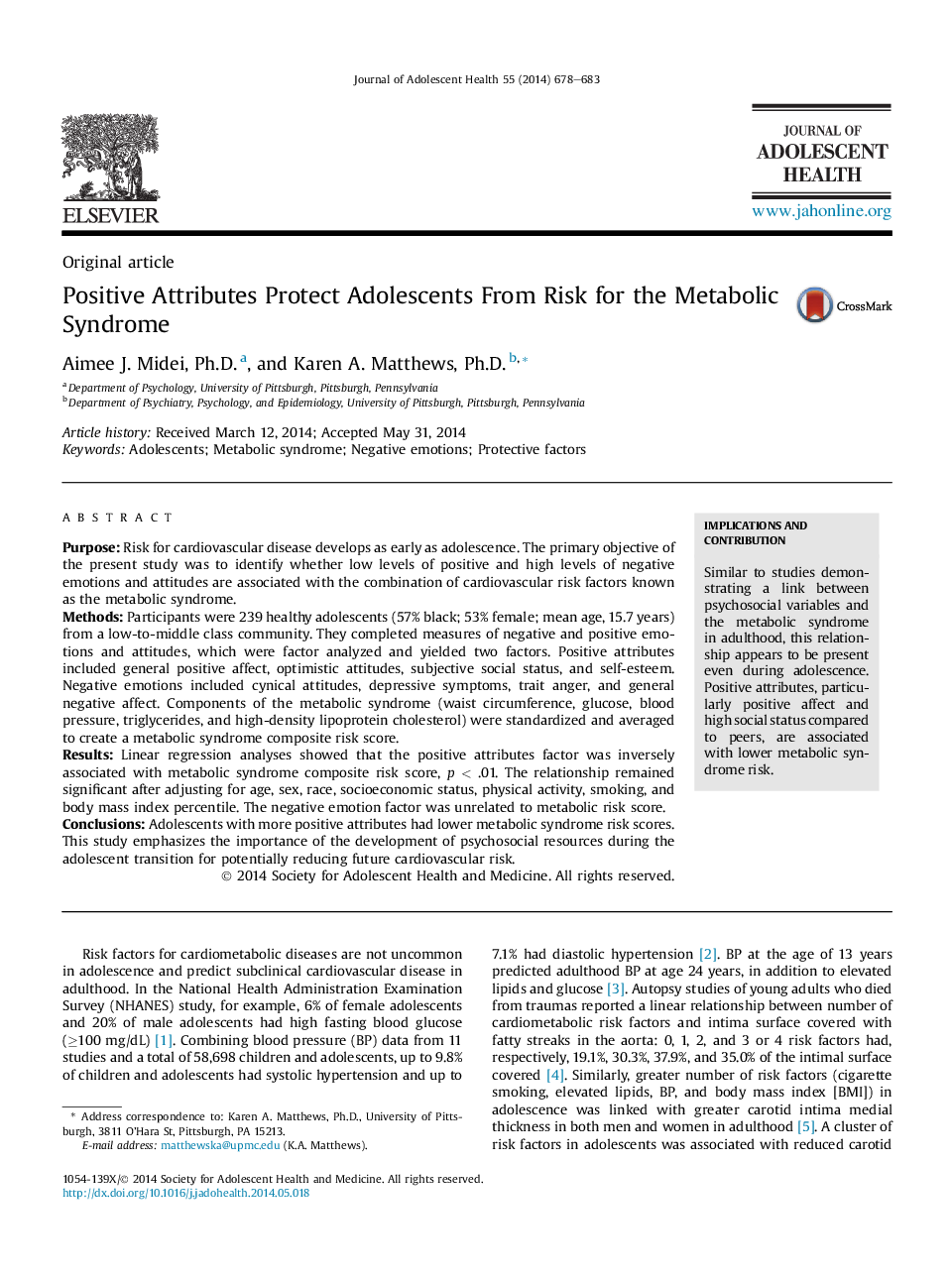| Article ID | Journal | Published Year | Pages | File Type |
|---|---|---|---|---|
| 1078396 | Journal of Adolescent Health | 2014 | 6 Pages |
PurposeRisk for cardiovascular disease develops as early as adolescence. The primary objective of the present study was to identify whether low levels of positive and high levels of negative emotions and attitudes are associated with the combination of cardiovascular risk factors known as the metabolic syndrome.MethodsParticipants were 239 healthy adolescents (57% black; 53% female; mean age, 15.7 years) from a low-to-middle class community. They completed measures of negative and positive emotions and attitudes, which were factor analyzed and yielded two factors. Positive attributes included general positive affect, optimistic attitudes, subjective social status, and self-esteem. Negative emotions included cynical attitudes, depressive symptoms, trait anger, and general negative affect. Components of the metabolic syndrome (waist circumference, glucose, blood pressure, triglycerides, and high-density lipoprotein cholesterol) were standardized and averaged to create a metabolic syndrome composite risk score.ResultsLinear regression analyses showed that the positive attributes factor was inversely associated with metabolic syndrome composite risk score, p < .01. The relationship remained significant after adjusting for age, sex, race, socioeconomic status, physical activity, smoking, and body mass index percentile. The negative emotion factor was unrelated to metabolic risk score.ConclusionsAdolescents with more positive attributes had lower metabolic syndrome risk scores. This study emphasizes the importance of the development of psychosocial resources during the adolescent transition for potentially reducing future cardiovascular risk.
